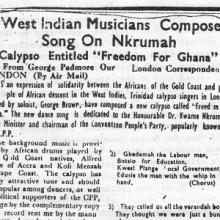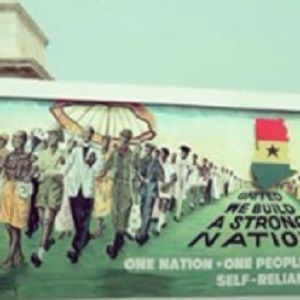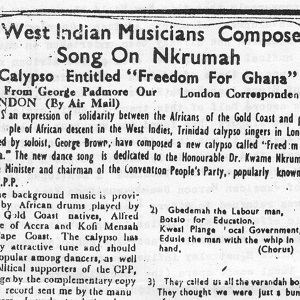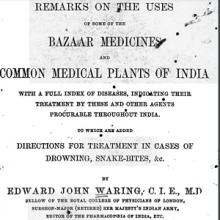Imperial/ Colonial

Shipping Company Route Map from 1889
This route-map of the Messageries Maritimes shipping company displays the main routes connecting metropolitan France to its empire in the Indo-Pacific. While the map dates to 1889, these routes retained their basic structure through the 1950s.

Laws of Manu
The Manu-smriti, or Laws of Manu, are of the most authoritative codes of Hinduism in India, dating back to approximately 1

"Resolutely support the just struggle of the American Blacks!" Propaganda Poster, 1963
The title of this Chinese propaganda poster is “Resolutely support the just struggle of the American Blacks!” (Jianjue zhichi Meiguo heirende zhengyi douzheng!).

“Drive the old and new colonialists out of Africa!” Propaganda Poster, 1964
This Chinese propaganda poster, dated August 1964, was designed by Chinese painters Wang Datong and Du Yongqiao and published by the People’s Fine Arts Publishing House in Beijing.
Speech by U.S. Civil Rights Leader Robert Williams, 1966
American civil rights leader Robert Williams delivered this speech on August 8th,1966 at a demonstration in Beijing commemorating the third anniversary of Mao Tse-tung’s “Statement
Mao Tse-tung's Statement Regarding Racial Discrimination in the United States, 1963
Chinese Communist Party Chairman Mao Tse-tung delivered this speech on August 9th, 1963 prior to the March on Washington for Jobs and Freedom. In it, he expresses support for Black Americans’ struggles against racial discrimination and calls upon peoples of the world to unite against U.S.

Short Teaching Module: Music and Decolonization in the Black Atlantic
The decades after World War II witnessed rapid decolonization of European empires and a dramatic increase in independence movements for colonized peoples.

Lord Kitchener, “Birth of Ghana,” 1957
On March 6, 1957, the Gold Coast Colony declared its independence from Britain and became Ghana, the first West African nation to break from European colonial rule.

George Browne “Freedom for Ghana”
While living in London in the early 1950s, the Trinidadian calypsonian George Browne (whose stage name was Young Tiger) penned a calypso called “Freedom for Ghana” that caught the attention of George Padmore, the Trinidadian pan-Africanist intellectual and journalist, who wrote about it in the Gh

Short Teaching Module: Teaching the Intersection of Gender and Race through Colonial Medical Texts
This module focuses on medical texts written by British doctors working in India and their gendered and racial categorization of ailments and diseases.